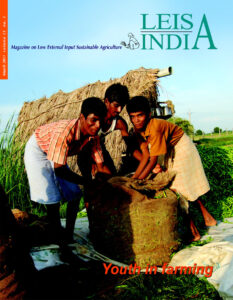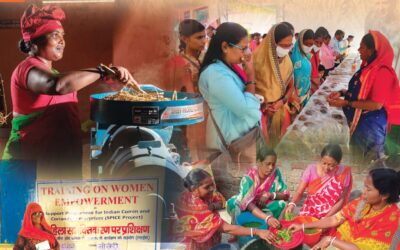
The growth in terms of rural youth proportion is being viewed through different lenses – as an opportunity, as a challenge. At the same time, the food and ecological crisis looming large worldwide is widening the complexity. The well known perspective has been to somehow absorb them into technology intensive sectors or urban service sector. Also, the most heard argument is that the youth are not interested in farming, they would like to migrate and enjoy urban amenities etc. While the choice is what they make for themselves, it does appear in debates that the effort is to highlight that they have no choice but to migrate.
We would like to share some experiences which highlight how youth remaining in rural areas build on what they have and know, be recognized and respected. Also, how the youth are getting interested in not only farming but also interested in serving rural communities. The experiences also illustrate that they need not radically learn new skills, creating a ‘disconnect’, but if guided and motivated, could also tone up their leadership and entrepreneurial skills.
In this issue, we have included experiences which address some of these issues. The type of educational processes which enable them to enjoy learning as well as sharing their learnings, inspirational examples of rural educated youth on what motivates them to remain in farming etc. Also, included are visionary views and perspectives of Dr. M S Swaminathan on what needs to be done.
Youth as catalysts of accelerated agricultural and rural development
M S Swaminathan
Life-skills and livelihoods college for the young farmers
Manjunath H
N R Ravi Prakash
Paul ter Weel
Meenakshi
Meeting a region’s broad development needs
Francesca Dalla Valle and Peter Wobst
Learning from farm, learning to farm
Nandish
Anurag, Maya and Sujata Goel
Farmers Diary – Agriculture is for our life
N Aravindan and N Vijayakumar
Shaping the change agents of future
Shreena Keswani, Neha Upreti and Gaurav Papnai
Vinayaka Rao
The Narayana Reddy Column Youth in farming
Building social capital by investing in rural youth
B V Joshi and K V S Prasad







